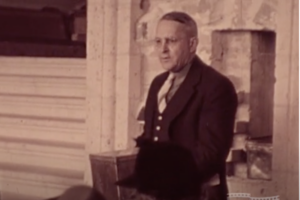Calls to reform, defund or dismantle police departments are being brought forth as solutions to the systemic racism that pervades many police departments in Texas and across the country. There is a tension between those who believe that there are “a few bad apples” and others who contend that departments in certain municipalities are so problematic that the system of policing has to change.
The focus on a few bad apples is misguided at best and dangerous at worst. To root out racism, we need to fix the barrels.
When national security adviser Robert O’Brien stated, “I don’t think there is systemic racism. I think 99.9% of our law enforcement officers are great Americans … There are a few bad apples that are giving law enforcement a terrible name,” he distorted the bad apples metaphor.
The actual saying is, “One bad apple spoils the bunch (or barrel),” meaning that one rotten apple can spoil all the other apples around it. Another interpretation of it is that a good apple can become bad when placed in a barrel with other rotten apples.
O’Brien was focusing on the overwhelming negative image of America’s police force that results from the actions of a few “bad” cops. However, the focus on the image of officers is misguided.
Instead, the killing of George Floyd demonstrates how one bad apple may have spoiled the bunch from a systemic racism perspective.
Derek Chauvin, the officer who is being charged with second degree murder, was able to snuff out George Floyd while three other officers watched and did not intervene. The other three officers are being charged with aiding and abetting second-degree murder, given that it was their inaction that also led to murder.
Let’s assume that Chauvin is the bad apple, a status cemented by at least 17 prior complaints lodged against him. His presence probably ruined the integrity of his fellow officers to the point where they stood by and let their fellow colleague murder a man. However, it was unlikely that Chauvin was the first bad apple in the Minnesota Police Department. Given other prior allegations lodged against the department, there was something about the system itself that corrupted the officers, perpetuating the creation of more bad apples. This gives credence to the notion of systemic racism.
The fact that two of the officers involved in the George Floyd case were rookie officers drives home the point that it is something about the system itself. One was working his third shift as an officer, and the other had been an officer for only four days. They looked to their more senior colleagues to figure out what to do.
Incidentally, these two rookie officers are trying to cast blame on their more senior colleague, claiming that they were just following orders. The two rookie officers had just started their slow-rotting process by watching and learning from one of the system’s many bad apples.
The “bad apples” narrative is also being used to describe excessive force used by police officers during these racial protests. Some of the more recent instances caught on camera include: The pushing of a 75-year-old protester by two Buffalo police officers that resulted in the elderly man hospitalized in serious condition. The excessive use of force on college students in Atlanta that included the use of a Taser on one of the students. And a New York Police Department vehicle veers toward a group of protesters.
How many bad apples do you need before the “bunch” is spoiled?
The accumulation of these events, which in fairness are not the majority, are still enough to signal a systemic issue. Regardless of the intervention, what is clear is that policing has to change. Large-scale reform is needed to root out anti-blackness and systemic racism.
In the words of Chris Rock: “Bad apples? Some jobs can’t have bad apples. Some jobs, everybody gotta be good.”
Germine Awad is an associate professor of educational psychology and is affiliated with the Department of African and African Diaspora Studies at The University of Texas at Austin.
A version of this op-ed appeared in the San Antonio Express NewsSan Antonio Express NewsSan Antonio Express News and the Waco Tribune Herald.




